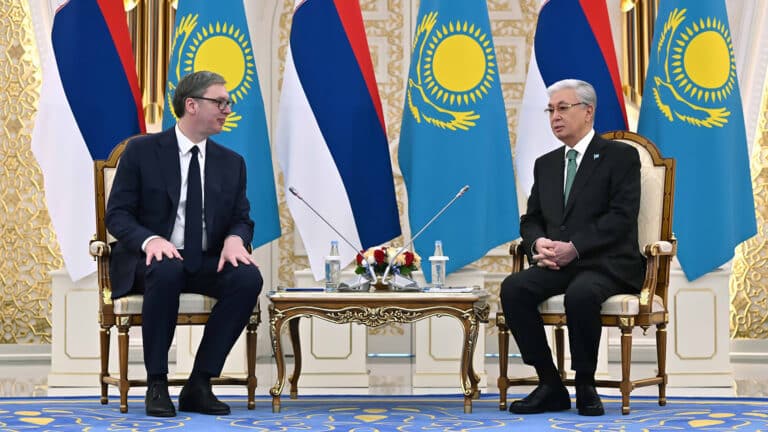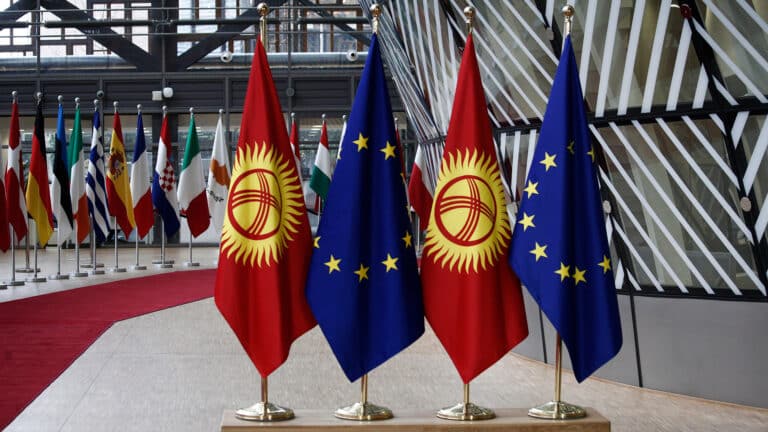
In 2024, Kazakhstan reduced the share of its shadow economy by 1.3 percentage points (p.p.), bringing it down to 16.2% of GDP. This achievement was highlighted in a report presented to President Kassym-Jomart Tokayev by Zhanat Elimanov, head of the Financial Monitoring Agency (FMA).
As part of the comprehensive action plan to combat the shadow economy for 2023-2025, the cabinet established specific targets for its share of GDP: a maximum of 18.2% in 2023, 16.6% in 2024 and 15% by 2025. According to data from the Bureau of National Statistics (BNS), the shadow economy’s share fell to 17.52% in 2023. By 2024, the government exceeded its goal, reducing the share of shadow economy by an additional 0.4 p.p.
The shadow economy includes activities that remain hidden from official statistics, often involving unregistered or illegal operations, as well as businesses that deliberately misreport information.
Kazakhstan’s methodology for calculating the shadow economy relies on several indicators. These include:
- The income gap, determined by deviations in tax payment levels compared to industry averages.
- Discrepancies between the State Revenue Committee’s foreign trade data and the customs statistics of counterpart countries, adjusted for transit volumes.
- The gross value added by informal sector enterprises.
Additional factors include tax and fee compliance, the number of high-risk businesses, the volume of non-cash transactions, the share of small and medium-sized enterprises (SMEs) in GDP, workers’ rights compliance and trafficking of illegal substances and goods.
Moreover, Elimanov reported that in 2024, the FMA confiscated approximately $320 million in criminal proceeds and recovered nearly $500 million in damages. The agency also prevented unjustified budget expenditures totaling around $250 million.
Over the year, the FMA shut down 42 Ponzi schemes and 36 illegal cryptocurrency exchanges. It blocked approximately 15,000 fraudulent websites, accounts and messenger chat rooms, preventing financial losses for more than 2 million citizens.
Elimanov also highlighted the success of a joint special operation conducted by the financial intelligence agencies of Kazakhstan, Belarus and Russia. The operation led to the closure of three major online drug marketplaces, the detention of 35 drug dealers and the disruption of nearly 2,000 fictitious companies involved in illegal financial schemes. Additionally, 1,200 attempts to transfer funds to terrorist and extremist organizations were prevented.













